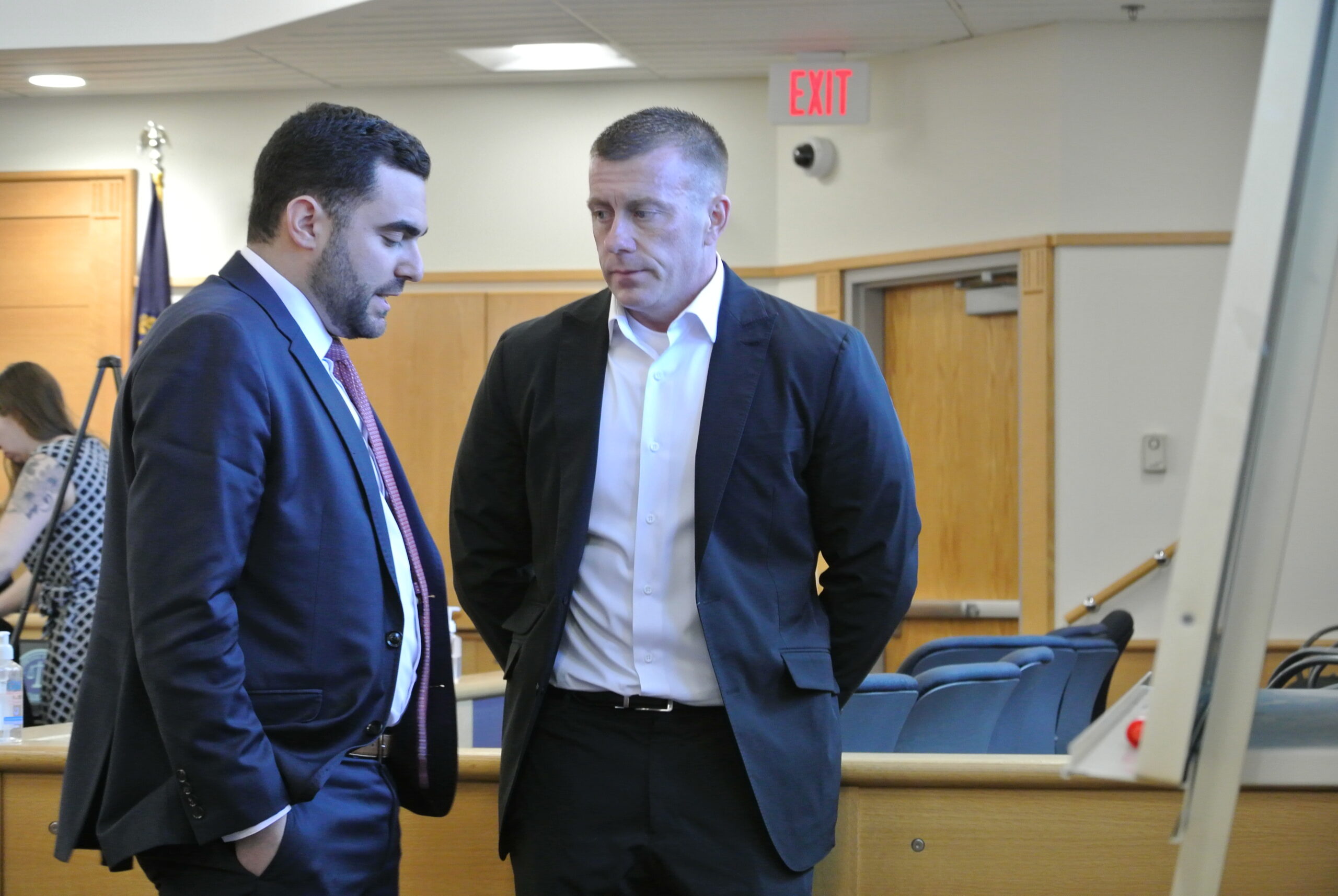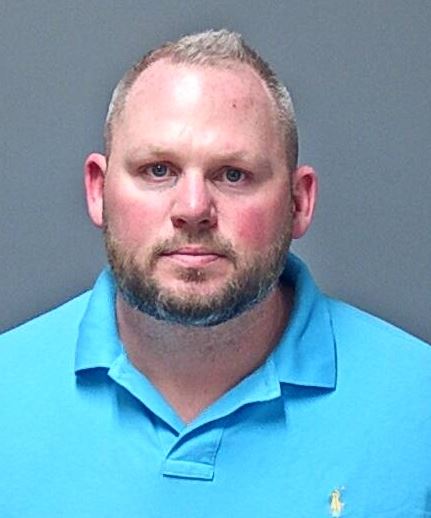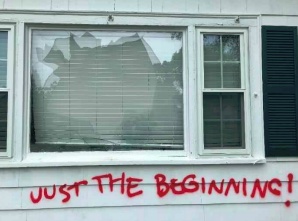In Domestic Violence Trial, Dem Woodburn Wants Biting To Count as Self-Defense

According to his attorney, jurors should be ordered to consider biting as self-defense when they deliberate the simple assault and domestic abuse charges against Jeffrey Woodburn.
The disgraced Democratic former state Senate Minority Leader is gearing up for his second trial on allegations he assaulted his former girlfriend on multiple occasions. His arrest six years ago resulted in a trial, conviction, and multiple appeals — not to mention the end of his political career.
Woodburn continues to fight the charges.
The Coos County Democrat was convicted in 2022, but the state Supreme Court tossed those convictions last year because he was originally barred from making the case he acted in self-defense. That sent the case back to Coos Superior Court for a new trial.
Woodburn’s attorney, Mark Sisti, filed his version of proposed jury instructions ahead of the sequel trial slated to start next week. The jury instructions make it clear Woodburn will try to justify his use of physical violence against his former girlfriend.
“A person has the right to utilize non-deadly force when he can reasonably believe that such force is necessary in order to defend himself. In this case, Jeffrey Woodburn asserts that his act of physical contact, including biting the alleged victim, was necessary as he reasonably believed that the complainant posed an imminent threat of restraining him from exiting the car,” according to the Woodburn defense documents.
According to court records, Woodburn bit the woman during a December 2017 argument as she was driving him back from a party. An intoxicated Woodburn demanded to be let out of the car, and he planned to call a friend for a ride. When the woman reached to take his phone, he allegedly bit her hand, according to the allegations.
While Woodburn was not able to cast blame on the victim at his original trial, the Supreme Court’s ruling means he can now claim the woman’s past aggressiveness when dealing with him, usually when he was intoxicated, to justify his actions.
According to the proposed jury instructions, Woodburn will argue he was acting out of the “heat of passion” and shouldn’t be judged with hindsight.
“In deciding whether the defendant acted in self-defense, you should consider all of the circumstances surrounding the incident. You should consider how the defendant acted under the circumstances as they were presented to him at the time and not necessarily as they appear upon detached reflection. You should consider whether the defendant’s belief that it was necessary to use non-deadly force was reasonable when he acted in the heat of passion,” the proposed instructions state.
It will ultimately be up to a jury to decide if Woodburn’s self-defense claims are enough to keep him from consequences. His related convictions on charges of criminal mischief were upheld on appeal, but Woodburn has yet to serve any jail time as the 30-day sentences were stayed pending the new trial.
According to court records, Woodburn kicked the door to the woman’s house and she refused to let him inside about a week after the fight in the car. Earlier that year, in August 2017, he reportedly kicked her clothes dryer, breaking the appliance, according to court records.
Woodburn’s tenacity in fighting the charges is similar to his scramble to stay in politics after his arrest in the summer of 2018. Despite calls from state Democrats to resign, Woodburn ran for reelection and won the primary in September 2018. He went on to lose the general election that November.









